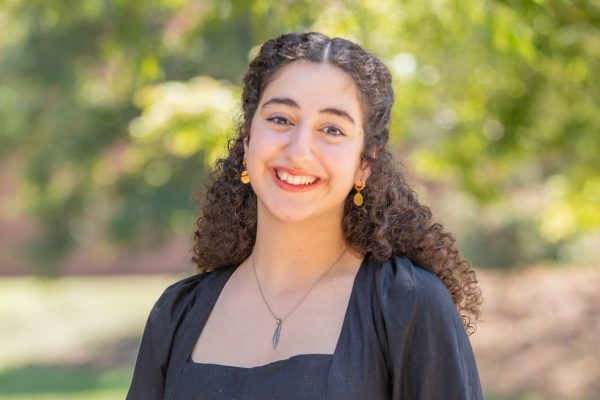Multiple faculty members interested in changing the approach to health care at Wichita State came together for “Artful Medicine: Bridging Medicine and the Humanities,” a presentation on emphasizing creativity in medical practice to better patient outcomes and reduce provider burnout.
The event was hosted by Susan Castro, associate philosophy professor and department chair. Castro’s line of study often centers on ethics in medicine and technology.
“I think people have gotten really gung ho about what we can do, and they’re not thinking very clearly about whether we should do it,” Castro said. “And sometimes, we can do it, but we need to do it differently. We need to put in guardrails. We need to slow down and think about safety and privacy.”
According to Castro, considering ethics in medicine was one reason for starting HealthHum, an academic center intending to better integrate art and humanity in biomedical sciences.
“I think there’s a general problem in the U.S. that it is focused very, very heavily on organic chemistry and the technical stuff and not enough on humanity,” Castro said in reference to the standard pre-medical curriculum.
A key part of Castro’s presentation was a method called VTS, or visual thinking strategies. VTS is a lens through which an individual can analyze art, but Castro thinks it can be applied to patient evaluations as well.
The three questions to ask when using VTS as a tool are, “What’s going on in this picture?”, “What do you see that makes you say that?” and “What more can you find?”
“When you do (VTS), you become much more intentionally observant,” Castro said. “When you start engaging in storytelling, you get more information about environmental factors.”
Attendee Rocío Del Águila, chair and associate professor of Spanish, Modern and Classical Languages and Literatures, said that engaging in a patient’s whole story should be the standard for medical education.
“I would hope that every medical student does that as part of their training,” Del Águila said. I would hope that the doctor (or) nurse that is giving you the medicine … knows that kind of background … about you.”
Marci Young, director of Health, Outreach, Prevention and Education services at WSU, voiced her concerns about the lack of narrative medicine in the standard patient experience with a primary care provider.
“How many times has your physician asked you, ‘What are the barriers in your life?’ That does not happen,” Young said. “They say, ‘This is what you need to do.’ If they have 20 minutes, and they’re 15 minutes behind, they’re going to try to get in and out as best as possible.”
Castro offered insight as to why this gap between patients and providers exists.
“The corporatization of medicine has really made a huge dent in our ability to listen to people’s stories,” Castro said. “It’s whoever is in a network that you get assigned (to) this time, so a lot of that relationship-building is absent.”The discussion also served as a brainstorming session for how better listening and storytelling could be implemented in the pre-health circles at WSU.
Castro said that adding courses in literature and the humanities catered to pre-health profession students would be a strong place to start. The group discussed collaboration with organizations like the Kansas College of Osteopathic Medicine and the University of Kansas School of Medicine and how to involve WSU students in their endeavors.
HealthHum will host another talk on bilingual health workers on Dec. 1 and a faculty research mixer on Jan. 26.





